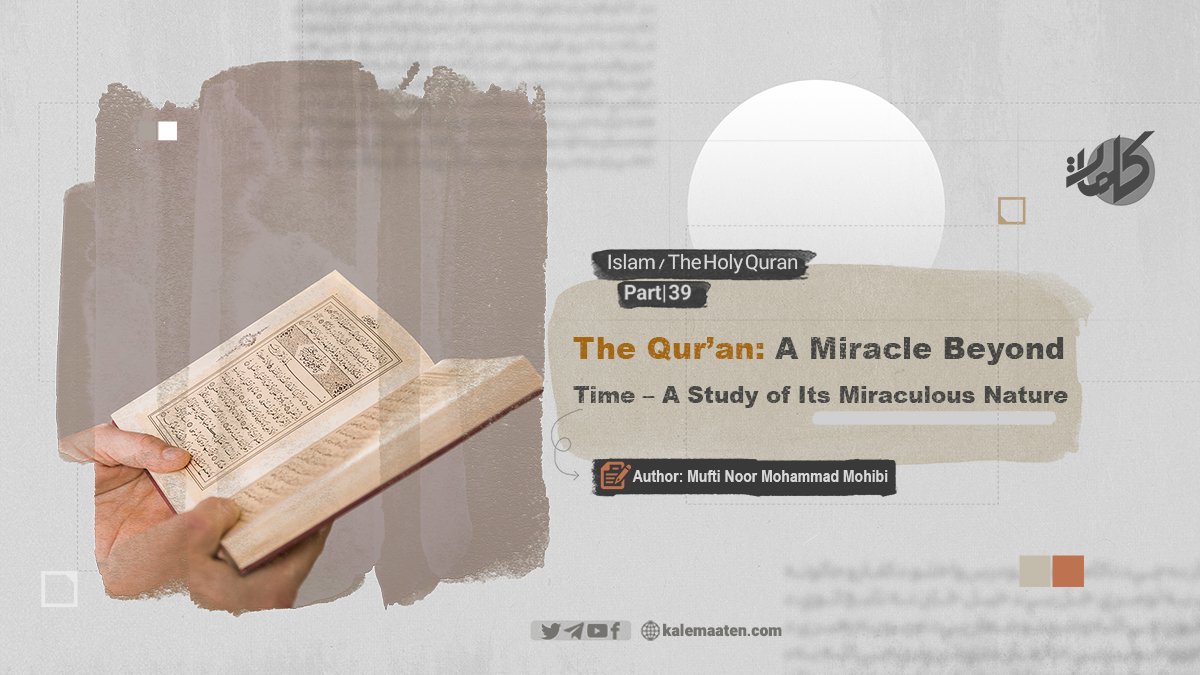
Author: Mufti Noor Mohammad Mohibi
The Quran: A Miracle Beyond Time- A Study of Its Miraculous Nature (Part 39)
The center of taste and the process of taste recognition in the brain
Allah Almighty has placed special cells on the human tongue that are scattered in the form of protrusions, through which humans are able to recognize different flavors of food; taste sweet and savory flavors and reject bitter and sour flavors, and also recognize salty and sour water. These taste cells located on the tongue are each specialized for a specific taste; some recognize sweet taste, some bitter taste, some salty and some sour.
Structure and function of taste cells
Taste cells are located on the tongue in the form of protrusions called taste buds. Each taste bud contains several cells that are specialized to one of the four main tastes: sweet, bitter, salty or sour. These cells come into direct contact with the molecules in the food and, after recognizing the taste, send nerve messages to the brain.
These messages are transmitted to the taste center in the brain via special nerves such as the glossopharyngeal nerve and the facial nerve. The taste center in the cerebral cortex processes the information, and identifies the taste of food.
The importance of different sensitivity of taste cells
As mentioned, the sensitivity of bitter taste cells is much higher, and the reason for this is to protect the body from the entry of toxic substances, which generally have a bitter taste. This protective mechanism is an example of the unique wisdom of creation that allows humans to avoid possible dangers.
The role of saliva in the tasting process
Saliva not only helps to keep the tongue moist and aid in the initial digestion of food, but also plays an important role in dissolving flavor molecules. This allows the flavor molecules to better contact the taste receptors and facilitates the taste recognition process.
The connection between smell and taste
The sense of smell and taste are interconnected, and their interaction allows humans to perceive more complex and diverse flavors. When eating, aromatic vapors from food move towards the nose and are recorded by olfactory receptors. These sensations are combined with taste information and form the actual taste experience.
That is why when a person has snuffle, the taste of foods is reduced or changed.
Memory and recognition of flavors in the brain
The taste center in the brain has the ability to store and retrieve information related to different flavors. This taste memory allows humans to compare and name new flavors with familiar flavors. For example, when we experience the taste of a fruit, the brain compares it with previous flavors and, if it matches, recognizes the name of that fruit.
This brain ability reflects the complexity and high accuracy of the human nervous system.
Allah Almighty says: “وَفِيٓ أَنفُسِكُمۚ أَفَلَا تُبصِرُونَ” Translation: “And in yourselves are clear signs and solid proofs for recognizing Allah and realizing His power. Will you not see?” [Al-Zariyyat: 21]
This verse indicates attention to the miracles within the human body, the knowledge and use of which increases appreciation and reflection on creation. [1]
Continues…
Previous Part / Next Part
References:
-
Encyclopedia of Scientific Miracles in the Qur’an and Sunnah, Vol. 1, pp. 139-140.


